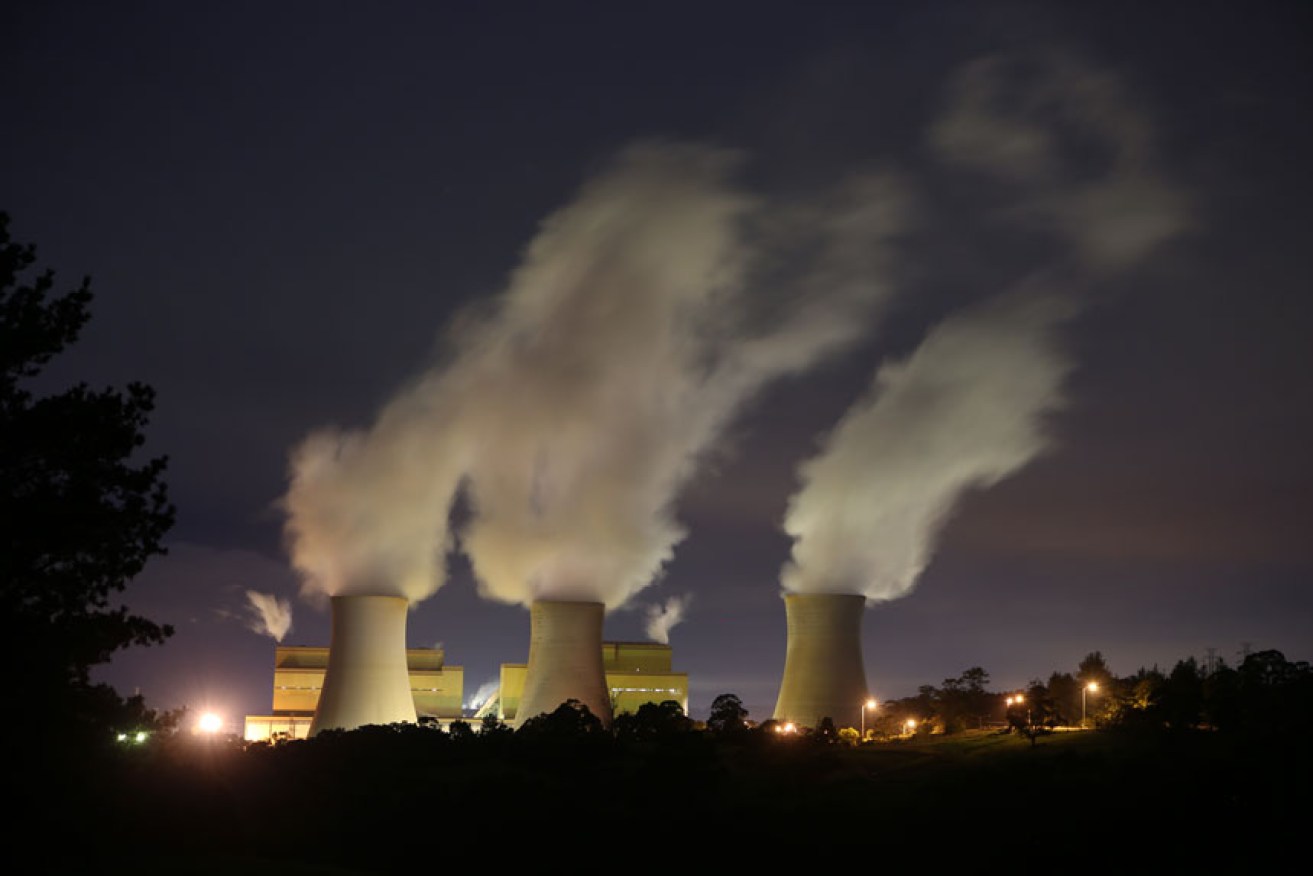How Australia is flirting with trade sanctions


By revealing its proposed post-2020 carbon emissions target to The Australian newspaper overnight, the Abbott government is testing the waters for a continuation of minimalist approach to climate action.
The newspaper today published details of Monday night’s cabinet deliberations and said: “In one scenario gaining support last night, ministers considered a 26 per cent reduction on today’s carbon emissions by 2030, clearing the way for the goal to be taken to a meeting of Coalition MPs as soon as today to be decided as official policy.”
“One submission from the Department of Foreign Affairs and Trade estimated the 26 per cent target would cut economic output by 0.02 per cent at the end of the target period compared with ‘business as usual’ without the new target.”
• Aussies want climate action taken seriously
• Former UN boss slams ‘free-riding’ Australia
• UN targets Tony Abbott’s climate change policy
That’s 20 cents shaved off every thousand dollars the economy earns in 2030 – around $0.6 billion in an economy expect to be worth $3000 billion.
No wonder the government is considering making its carbon emission reduction target among the weakest in the OECD – much more than 20 cents in every $1000 would surely rob us all!
Imagine the hours that householders and business owners would spend poring over their electricity bills and budgets, magnifying glass in hand, trying to find such an infinitesimally small impost.
So what’s the government really up to? Two possibilities look likely.
Firstly, by handing these numbers to the press, it could later decide to come out with a more ambitious target when the full joint-party room has voted on the policy.
That would be a classic feint – suggest inadequate cuts, listen to Labor’s attacks, only to surprise on the upside by releasing a more responsible policy just days later.
Secondly, and sadly more likely, is that Prime Minister Abbott seriously thinks he can re-run the carbon scare campaign that helped him win the 2013 election – despite new polls showing two-thirds of Australians want stronger action on climate change. The first option would be the most sensible, of course.
The Coalition is running out of time to outflank Labor on an issue that is set to intensify in importance after the COP 21 conference in Paris in December.

Experts believe increased use of coal is partly to blame for rising carbon emissions. Photo: Getty
That’s the conference at which the US and China, following the EU’s lead, are expected to bully the rest of the world into taking stronger action on climate.
Despite having used climate action as a deadly political weapon against the Gillard government, Abbott must at some point get on the front foot on an issue that will harm our GDP by a lot more than $0.6 billion if not addressed.
Climate action in economic terms is a straightforward exercise in risk mitigation.
We have increased the concentration of heat-trapping gases in the atmosphere by 40 per cent already, and scientists overwhelmingly think this is already changing climate patterns.
Besides big changes in the natural biosphere, changes in regional climates – be they hotter, cooler, wetter or drier – threaten the economic systems on which the livelihoods of the the world’s 7.3 billion people depend.
This relates in particular to the threat of collapse of large agricultural systems, and changes in useable water catchments – both of which could throw hundreds of million of people into conflict over the basic resources needed for human life, or simply set them adrift in search of better places to live.
If that comes to pass, there will be no ‘stopping the boats’.
Any business faced with such existential threats, and offered a risk mitigation plan at even ten times the relative cost of the Abbott plan, would take it up in a second. In politics, things are more complicated.
That’s because all the threats listed above are global in the sense that no one nation will control where the pain falls.
But there are other climate-change risks that are controlled by by nation states – predominantly by the US and China, who plan to use the COP 21 conference in Paris in December to force a global agreement on limiting carbon emissions.
Those economic superpowers have, at their disposal, well-established trade sanctions with which to punish nations that are trying to be free-riders in climate action.
Australia, to date, is the nation most likely to suffer such sanctions.
That’s because, although our per-capita carbon emissions are among the highest in the world, opponents of climate action have tried to argue – and Coalition policy certainly implies – that there’s no point in us taking strong action because we produce less than two per cent of all global emissions.
To the US, China and EU, those arguments are immaterial.
That’s because under well-established international law, countries that impose special taxes or imposts behind their borders are free to seek ‘border tax adjustments’ from trading partners.
For example, Australia levies a GST of 10 per cent. If it did not demand a border tax adjustment on imported goods (currently on goods valued over $1000) it would put its own businesses at a disadvantage.
Likewise, nations that use various policies to impose an effective ‘price’ on carbon emissions, can use World Trade Organisation precedent to argue for BTAs.
Importantly, the WTO rulings do not consider BTAs to a be a form of protectionism, but as a way to maintain a level playing field for international trade.
A detailed analysis of potential use of BTAs by our biggest trading partner, China’s, can be found here.
Early moves in the use of BTAs have already been seen – such as the EU move to impose a carbon price on foreign carriers flying in to Europe.
The big-picture reason to choose an emission reduction target on a par with our major trading partners is because we don’t want to vandalise the biosphere upon which the people of all nations depend.
But even if Abbott’s joint-party-room don’t think that’s their concern, national self-interest alone should be enough reason to vote for a target that won’t leave us horribly exposed to sanctions from our trade partners.








